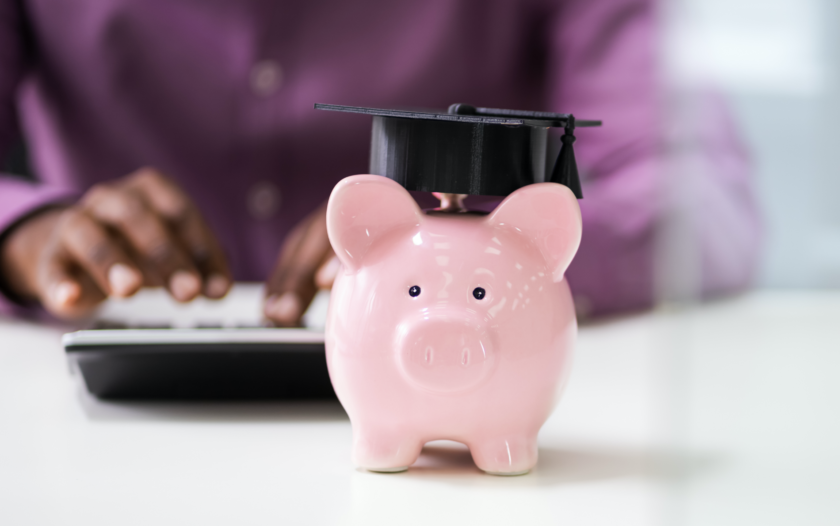How to Pay Off Student Loans Fast – Tips
About Kevin
Kevin is a former fintech coach and financial services professional. When not on the golf course, he can be found traveling with his wife or spending time with their eight wonderful grandchildren and two cats.
Read full bio
At a Glance
Student loan debt is so widespread that it’s become a political issue during campaign season. The cost of going to college has tripled in the past 20 years. Seventy percent of graduating students carry it with them, some as much as $30,000 or more. That’s a significant bill that takes a long time to pay off. Thankfully, there are several ways to do it faster.
We’re not talking about student loan debt forgiveness here. For students with federal student loans, some degree of forgiveness might happen in the next few years. This also applies to graduates who take on public service jobs. Many of those positions offer income-based student loan payment plans that end after 10 years with any remaining debt being forgiven.
In this article, we’ve compiled a list of ways to pay off student loan debt faster, without any type of forgiveness program. The common denominator with all these tips is financial discipline. To become debt free requires the willingness to budget your money carefully and a commitment to stick to the payment plan you decide to follow.
1. Payments While You’re Still in School
Most student loan payment plans don’t start until after you’ve graduated. Even then, there’s usually a grace period before your first payment becomes due. You don’t need to wait to start paying them off. Make payments while you’re still in school and during your grace period. You’ll save on interest charges that way and get those loans paid off faster.
2. Lower Interest Charges with Automatic Debit
This doesn’t happen with all student loans, but some lenders will give you a break on your interest rate if you sign up for automatic debit. This also ensures that you won’t miss payments and don’t need to decide whether to pay off student loans or invest. With auto-debits, you’ll know exactly what you have left each month for your retirement or investment portfolio.
3. Increase Your Monthly Payment
It may be possible to do this when you set up automated debits. If not, add a payment manually each month to bring your balance down. This will get you paid off faster and increase your credit score because those extra payments are reported to the credit bureaus every month. Higher credit scores are the key to better rates if you want to buy a house or a car.
4. Make a Payment with Your Tax Refund
Using your tax refund each year to make a lump sum payment on your student loans will seriously lower the number of months it takes you to get out from under the student loan lender. Doing it while you’re still young frees up future tax refunds and increases your take-home pay because you won’t have monthly loan payments to deal with.
5. Consolidate Your Student Loan Debt
Look into student loan debt consolidation. With interest rates still historically low, you may be able to save money by refinancing with a personal loan or a home equity loan if you own your home. Consolidation can also shorten the number of months you need to make payments. Ask for three-year or five-year payment terms if your bank offers them.
6. Get a Job with Student Loan Benefits
There are companies that offer tuition reimbursement and there are companies that pay off student loan debt. The former is good for students just enrolling in college. The latter is for graduates who want to find relief from their student loan debt. Ask about these benefits when you interview for a position. Look for employers who value education.
Frequently Asked Questions
Is it bad to pay off student loans quickly?
No, it’s not bad to pay off student loans quickly. You’ll save money if you pay off your student loan in less time than you’re required to. Student loans, like most debt, accumulate interest if they remain outstanding. Paying it off early lowers the amount of total interest you pay.









